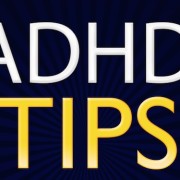Parenting Pointers – Children with ADHD
Dr. Russell Barkley stresses the importance of practicing “scientific parenting.” Much like scientists, parents of children with ADHD must be open and critical to new information. The following points describe the steps you need to take in order to be a scientific parent.
- It’s okay to be uncertain. No one, including professionals, has the perfect guide to parenting a child with ADHD. Keep an open mind regarding information about ADHD or you may miss out on useful information.
- Gain knowledge about ADHD. After admitting your uncertainty about parenting a child with ADHD, make a point to seek knowledge. Read the books, read the blogs, and ask questions! Knowing as much as possible about ADHD and learning from others’ mistakes will prepare you for the journey of raising your child.
- Be critical of information. In other words, don’t believe everything you hear or read about ADHD. Reading opinions and other people’s experiences may be useful to you, but only professionals and credible sources can be truly trusted.
- Try new things and don’t give up! Don’t be afraid to try new parenting methods if your old ways aren’t working. Experiment and do not be discouraged if the method fails. Failure will lead you in the direction towards success.
Contact Dr. Gordon for help with your ADHD. We have treatment and solutions available online, by phone, and in our offices.
written by: Brianna Malinowski, Jay Gordon, Ph.D
Barkley, R. A. (2013). Taking charge of ADHD: The complete, authoritative guide for parents (3rd ed.). New York: The Guilford Press.
Picture retrieved August 3, 2015 from: http://renewconnectenjoy.com/workshops/



